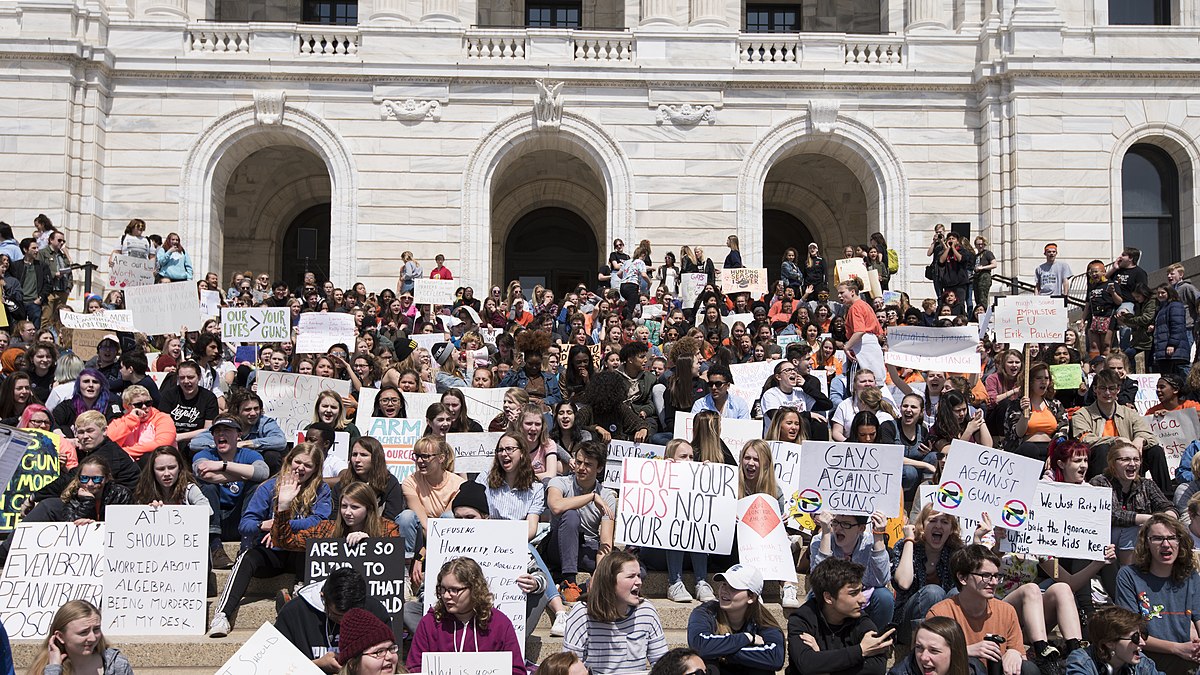CW: gun violence, murder, terrorism
This morning, I woke up to the news headlines about the mass shooting at an elementary school in Uvalde, Texas: 14 children, one teacher dead. Soon upped to 19 children, two teachers dead. This comes only ten days after ten people were shot to death at a supermarket in a primarily Black neighbourhood in Buffalo, New York, and only nine days after one person was killed and five injured in a shooting at a Taiwanese church in Orange County, California. On seeing the news, I said aloud, “That’s terrible.” And it is. But at the same time the depressing regularity of this violence has made me – like, I suspect, many others – unable to process the horror anymore. Every time it happens, nothing changes, and the news cycle – and with it our emotional response – moves on a little faster.
Clicking through the Instagram stories of Americans I follow, I felt increasingly that I was trapped in some kind of disturbing, rhythmic poem, the same lines recurring in a loop with no conclusion. Twenty one dead. Unbelievable. Too believable. Gun control now. This has to stop. Twenty one dead. When will it end? This is America. Unimaginable horror. Too imaginable. They were only children. We need gun laws. This is America. My heart breaks. We have to act. Twenty one dead. When will it end?
The problem is that it will not end until politicians start placing people before profit and power. As things stand, a small group of senators is holding the rest of the United States in its terrifying grip by preventing votes on legislation which would tighten background checks for gun owners – even legislation which has already passed in the House of Representatives with bipartisan support. They have chosen a perverse Faustian pact, signing away their moral compasses in return for a fat pay cheque from the NRA – an incredibly wealthy and powerful gun lobby which, ludicrously enough, is officially registered as a charitable organisation. The only way I can begin to comprehend this behaviour is to suppose that it is a product of some kind of emotional and cognitive dissonance: they refuse to see the connection between their actions and the inevitable results, and between those results and the absolute devastation and trauma wrought on families and communities all over the country. A generation is growing up in America who, if they are lucky, spend their time in school rehearsing how to hide from an armed murderer, and, if they are unlucky, actually have to do so – and may not get to grow up at all. What kind of damage does this do to a child? To anyone? We need to feel this in our conscience. Perhaps the most important thing we can do, whatever our situation, is refuse to fall into the same trap as those who are actively choosing to allow this brutality, this terrorism, to continue. We need to stop reading the news and then simply moving on with our day, but to sit with our feelings and channel them into positive change.
The issue which then arises is how we can bear to live our lives under the weight of so much constant grief. The only answer which I can find is that we must also feel joy and hope. Without a balance of grief, joy, anger, and hope, we become numb cogs in an inhuman (and inhumane) machine. Mamie Elizabeth Till-Mobley, the American educator and activist and mother of Emmett Till, said “Somewhere between the fact we know and the anxiety we feel is the reality we live.” This is the tightrope we must tread, since choosing either to abandon emotion in favour of bald facts or to allow ourselves to become so consumed with our emotional response that we are inhibited from truly living (or acting) is dangerous.
During a news conference, Steve Kerr, the head coach of the NBA Warriors, refused to talk about basketball and instead delivered an impassioned call for action on gun violence. “I’m tired of the moments of silence,” he said. I too am tired of silence. I’m tired of silence instead of children’s voices, and I’m tired of silence instead of action.
My heart breaks. We have to act. Twenty one dead. When will it end?
Image credit: Fibonacci Blue / CC BY 2.0 via Wikimedia Commons



